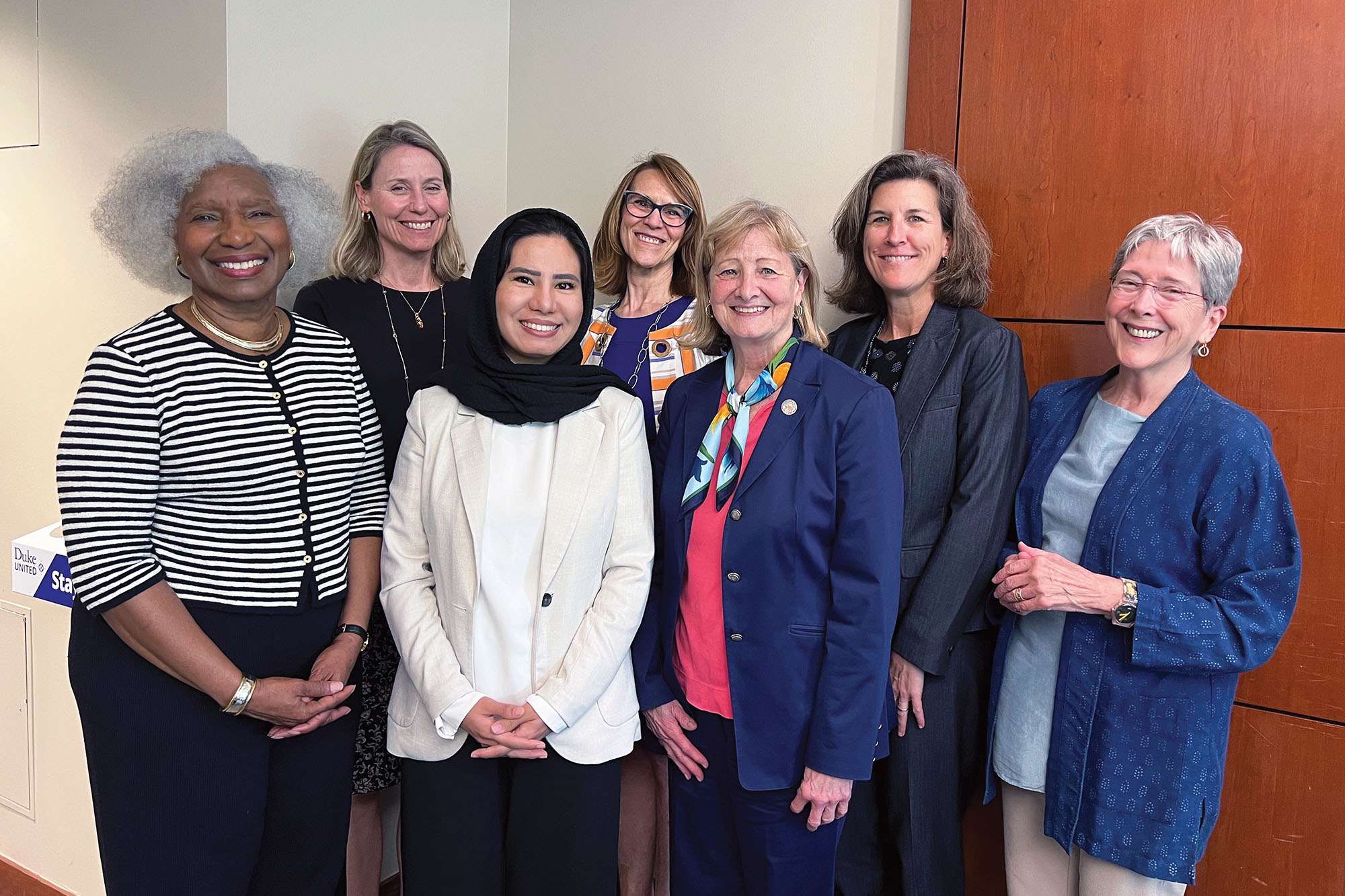
Duke Law School welcomed Judge Tayeba Parsa of Afghanistan as the first Bolch Judicial Institute Rule of Law Judicial Fellow in May. Judge Parsa was among 250 women judges in Afghanistan. She was a judge in the Commercial Division of the Appellate Court of Kabul Province in August 2021 when she was forced to flee for her life as the Taliban took power.
As the Bolch Rule of Law Judicial Fellow, Judge Parsa will study, teach, conduct research, and pursue new educational and professional opportunities with support from Duke Law and the Bolch Judicial Institute. She is also receiving support from the Open Society’s Afghan Challenge Fund.
“The goal is to give Judge Parsa the time, educational and networking opportunities, and support systems she will need to prepare to continue her legal education and scholarship or to pursue professional opportunities in legal practice,” said Paul W. Grimm, a retired federal judge and the David F. Levi Professor of the Practice of Law and Director of the Bolch Judicial Institute at Duke Law School. “She is incredibly devoted to the profession of judging and to the ideals of justice for all. Her bravery — not just in her harrowing escape from Afghanistan but in enduring years of discrimination, threats, and even abuse as a woman judge in a male-dominated society — underscores how deeply she believes in the rule of law. We hope this fellowship will give her many opportunities to advance her studies and career.”
When the Taliban reclaimed power across Afghanistan in August 2021, they threatened to kill those who supported the previous democratic government, which was built with U.S. support over nearly 20 years. Because of the Taliban’s harsh stance toward women, the country’s women judges were in particular danger. Many immediately went into hiding and burned their law degrees and case documents to erase evidence of their work.
With help from the International Association of Women Judges (IAWJ), which helped to arrange her escape flight and temporary refuge, Judge Parsa was among the few women judges who successfully escaped Afghanistan in the days immediately following Kabul’s fall to the Taliban. She and her husband were evacuated to Poland, where they received temporary refugee assistance from the government and welcomed their baby girl. Though they are grateful for the support they received in Poland, living in limbo for 19 months was difficult for both Judge Parsa and her husband, who has a law degree and worked in data management in Afghanistan.
“For me, losing my job was like losing my life,” said Judge Parsa. “I studied and practiced law with a passion for almost 17 years. I was never happy only because I had a good position and was able to make money and a comfortable life for myself and my family. I was so pleased because I was able to make a difference in the society, and I had direct impact on administering justice. For me, protecting rightful people and preventing justice from being undone by corruption in courts gave meaning to my life. So while I am alive, I do not give up. I fight for the rule of law, equality, and women’s and minorities’ rights, even from exile.”
As part of her fellowship, Judge Parsa is auditing courses in Duke Law’s Master of Judicial Studies program and will join other courses and programs at Duke. She will also pursue her own research into topics pertaining to the rule of law and women’s rights. “I would like to build my knowledge of law and learn from my experiences in the United States and from other judges, to use my knowledge in order to be able to work in the field of law and for the future of Afghanistan,” said Judge Parsa. “I would like to dedicate the knowledge that I get through this opportunity at Duke to the service of the people of Afghanistan, to rebuilding Afghanistan, and bringing back the rule of law, equality, and justice to the people of Afghanistan.”